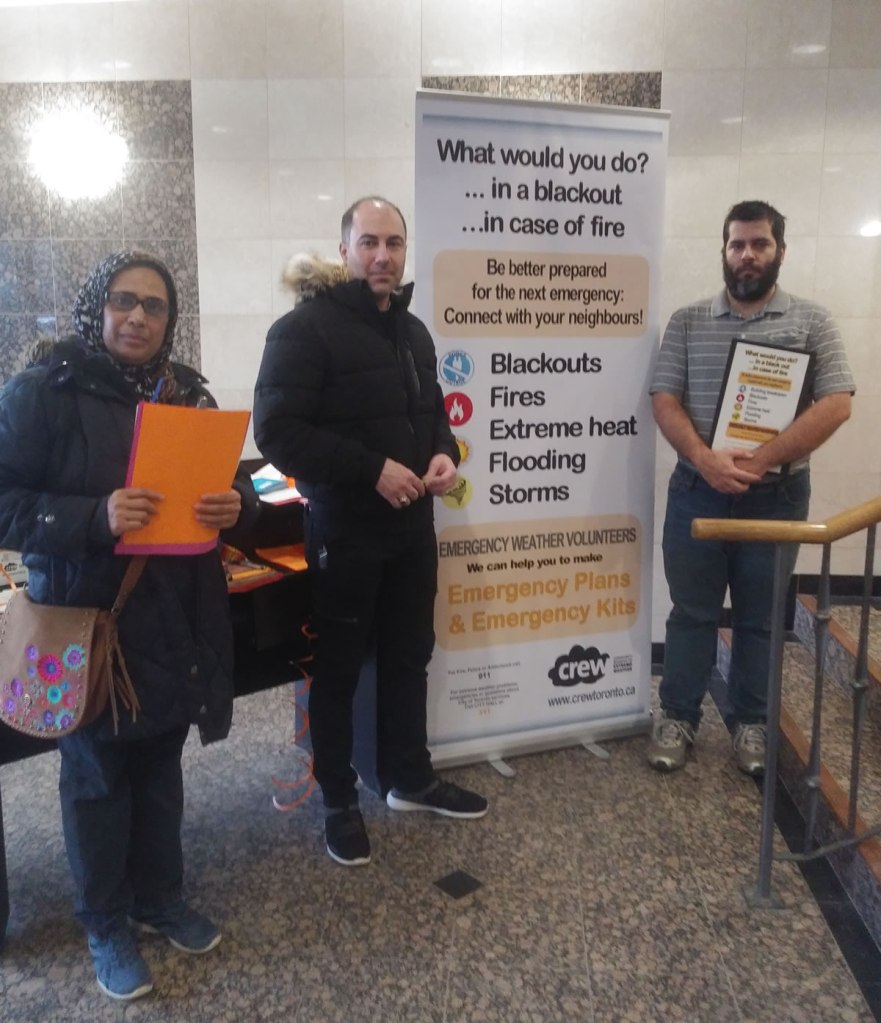Approximately 85% of Canadians agree that having an emergency kit is important, but only 40% actually have one!
All levels of government across the country tell Canadians that they should prepare to look after themselves and their families for the first 72 hours following an emergency event. If you’re prepared for climate impacts, you’re also ready for other unanticipated shocks and stresses.
Are you ready for an emergency?
Residents who live in a high rise building should know:
- The building superintendent’s name and phone number
- Locations of fire extinguishers, automated external defibrillator units and oxygen tanks
- Location of emergency evacuation device(s)
- Location of emergency exits
- Who conducts your building’s evacuation drills and how often
- Who the floor monitors are (if the building has floor monitors)
- Where to assemble if the building is evacuated
Grow your social network
Neighbours can help neighbours when disaster strikes. How well do you know your neighbours?
Helping someone with a disability or special needs?
There are additional things to note when assisting people with disabilities and special needs during an emergency
Go Bag
If you have to leave your home in a hurry — the basic version of your kit with extra clothing could be in a bag that’s easy to carry and stored near your front door.
- Water (4 litres per person for three days)
- Food (non-perishable) and manual can opener if this includes cans
- Special needs such as medications, baby needs, extra glasses, etc.
- Important documents (i.e. copies of birth and marriage certificates, passports, licenses, wills, land deeds and insurance)
- A copy of your emergency plan
- Crank or battery-operated flashlight, with extra batteries
- Battery-operated or crank radio
- Extra keys, for your house and car
- First aid kit
- Extra cash (ATMs may not be working)
- Personal hygiene items
- Pet food and pet medication
- Cell phone with extra charger or battery pack
Make an emergency plan
The Red Cross offers a fillable Emergency Plan (PDF)
Helpful Videos
Most cities, regions, provinces, territories and the government of Canada have Emergency Managers with information on emergency preparedness.
Make plans before disaster strikes
Social networking for making community plans:
| Benefits | Adaptations |
| Improved mental health | Identify places where people can meet before and during an emergency |
| Improved physical safety | Make those places safe and inviting |
| Stronger neighbourhoods | Identify local leaders |
| Strength of group voice influences support for local safety projects. | Let the city know that this work is underway and ask for support |
What CREW does
CREW’s trained emergency preparedness volunteers reach out to neighbours in their apartment building’s lobby.


Resources
From the Red Cross – How to plan for emergencies
From Health Canada – How to plan for emergencies
Tenant Insurance
From Settlement.Org – Do I have to get tenant insurance?
Cansumer, Tenant Insurance in Canada – Coverage, Costs & FAQ, by Ashley Tonkens
From the Insurance Bureau of Canada (IBC) – Information on basic tenant insurance
